Equipment
Titleist 718 AP2 Black and AP3 Black released in limited quantities
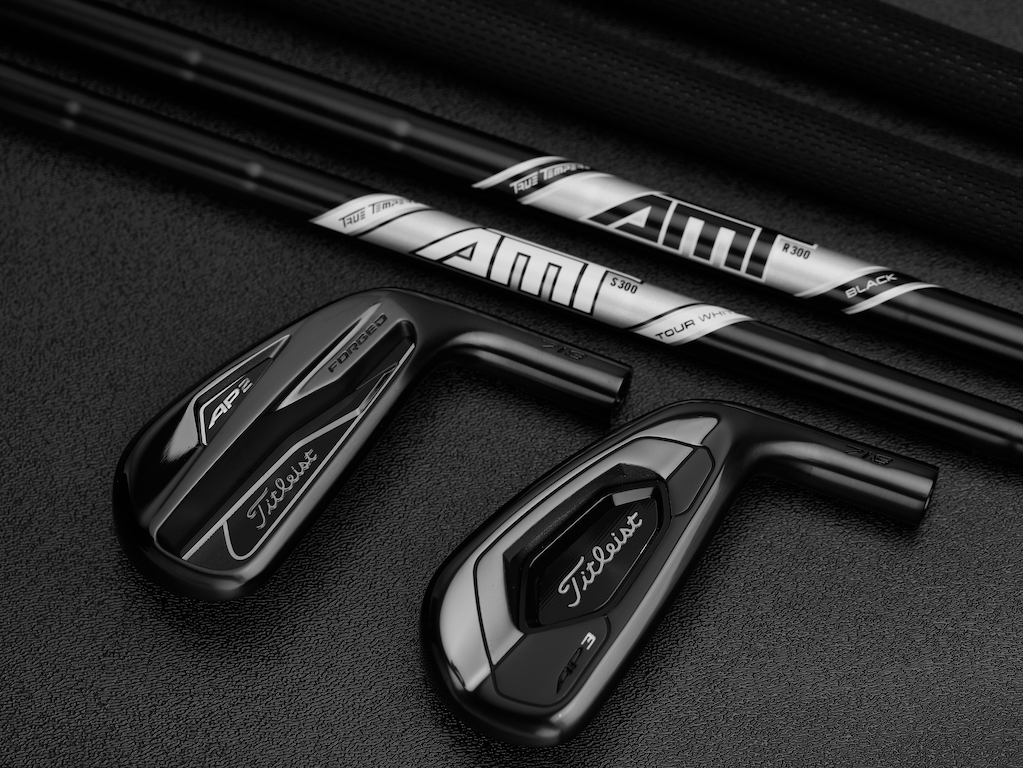
Titleist has unveiled new 718 AP2 Black and 718 AP3 Black irons in limited black finish that will be available to purchase from March 1.
Previously only available in a traditional chrome finish, the new Titleist 718 AP2 Black and Titleist 718 AP3 Black irons are finished with a sleek, high polish black PVD coating. The irons feature True Temper AMT Onyx shafts stock. The shafts’ powder coat matte black finish aims to minimize glare (in addition to looking cool). An all-black Golf Pride Tour Velvet 360 grip is standard as well.
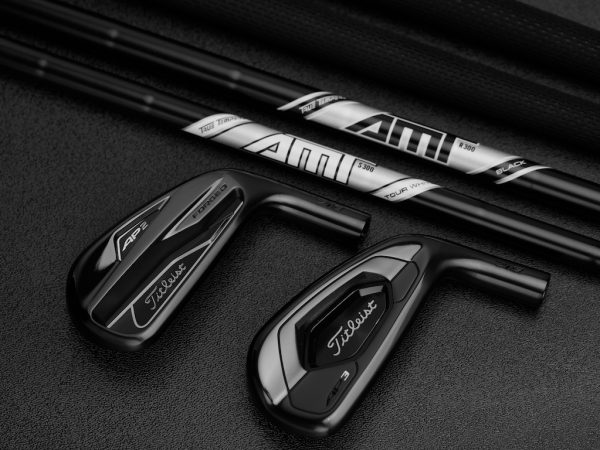
Speaking on the move to release the irons in black, Josh Talge, Vice President, Golf Club Marketing said
“One request we heard from both tour players and amateurs, particularly those who have gravitated toward our Jet Black Vokey SM7 wedges, was if they could have these same irons in a darker finish. Our team spent a lot of time making sure the aesthetics were done just right. It’s a look that you just have to see.”
A quick refresher on the two models, below.
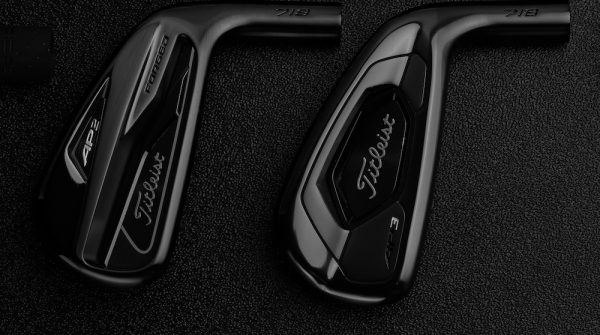
Titleist 718 AP3 Black
The 718 AP3 iron is a players distance iron which features a hollow-blade design with high-speed face technology. According to Titleist, the company merged the technology found in their AP1 and AP2 irons to create the AP3, which the company are calling their longest and fastest players iron ever.
Commenting on the AP3, Talge stated
“AP3 truly represents the best of both worlds. We’re giving you the distance and forgiveness of a game improvement iron packed into the look and feel of a player’s iron.”
The set is made up of 4-iron through 48-degree wedge. The AP3 Black irons, which are available for right-handers only, are available to purchase from March 1 and will cost $187.50 per club or $1,499/set of 8.
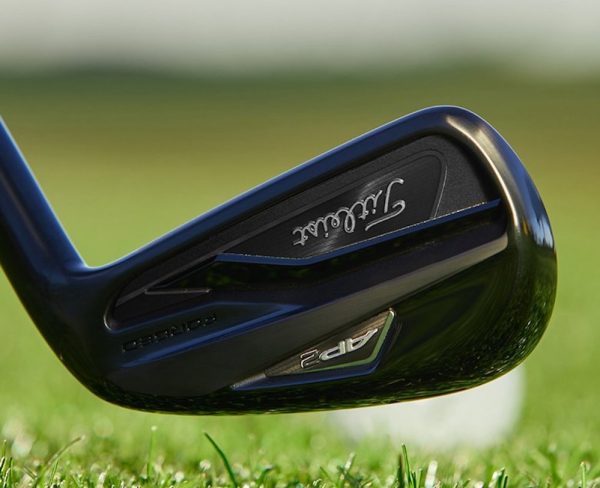
Titleist 718 AP2 Black
The 718 AP2 iron features a co-forged cavity back design which aims to provide consistent distance and forgiveness, while also delivering excellent feel to all golfers.
Speaking concerning the AP2 iron, Talge had this to say
“AP2 is the most popular tour iron globally because it combines the look and feel tour players demand with the precise distance control they need to consistently hit their target, shot after shot. For everyone else, it’s the tour iron within reach, because it is so forgiving.”
The set is made up of 4-iron through 50-degree wedge. Also available for right-handers only, the irons are available to purchase from March 1 and will cost $187.50 per club or $1,499/set of 8 as well.
See what GolfWRX Members are saying about the irons in the forums.
- LIKE135
- LEGIT10
- WOW19
- LOL3
- IDHT3
- FLOP2
- OB1
- SHANK26
Whats in the Bag
WITB Time Machine: Danny Willett’s winning WITB, 2016 Masters
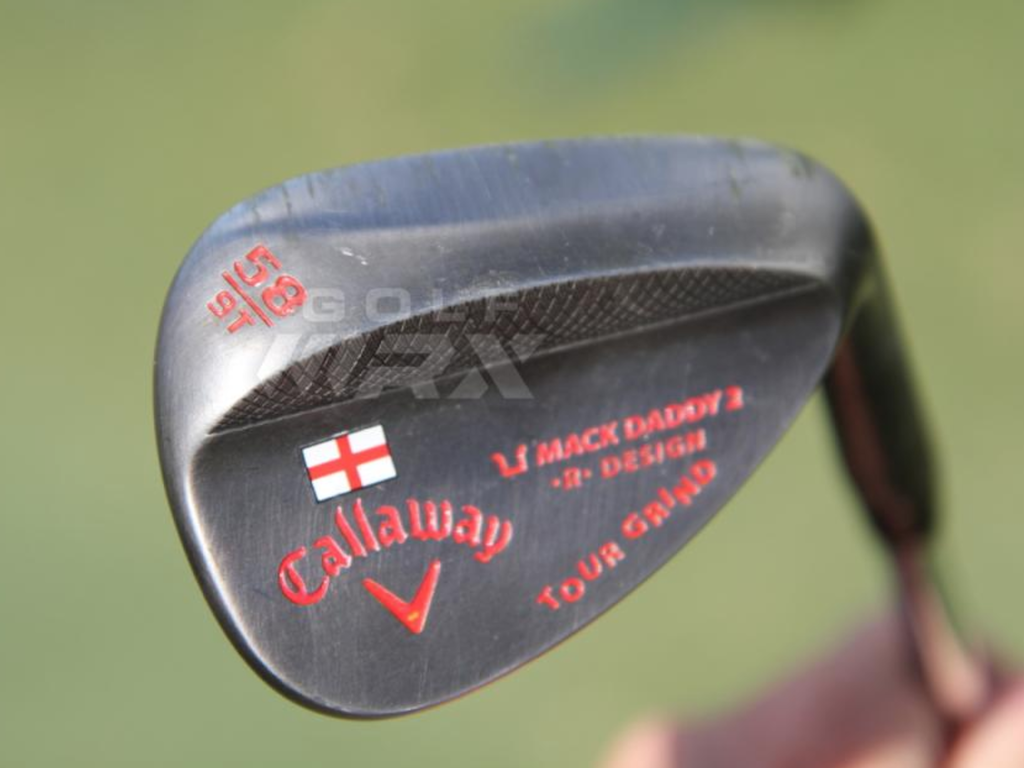
Driver: Callaway XR 16 (9 degrees)
Shaft: Mitsubishi Rayon Diamana W-Series 60 X
Length: 45.5 inches
3-wood: Callaway XR 16 (15 degrees)
Shaft: Mitsubishi Rayon Diamana W-Series 70X
5-wood: Callaway XR 16 (19 degrees)
Shaft: Mitsubishi Rayon Diamana W-Series 80X
Irons: Callaway Apex UT (2, 4), Callaway Apex Pro (5-9)
Shaft: True Temper Dynamic Gold X100 Superlite
Wedges: Callaway Mack Daddy 2 (47-11 S-Grind) Callaway Mack Daddy 2 Tour Grind (54-11, 58-9)
Shaft: True Temper Dynamic Gold X100 Superlite
Putter: Odyssey Versa #1 Wide (WBW)
Lie angle: 71 degrees
Ball: Callaway Speed Regime SR-3
Check out more photos of Willett’s equipment from 2016 here.
- LIKE5
- LEGIT0
- WOW1
- LOL0
- IDHT0
- FLOP0
- OB0
- SHANK0
Equipment
Project X Denali Blue, Black shaft Review – Club Junkie Review
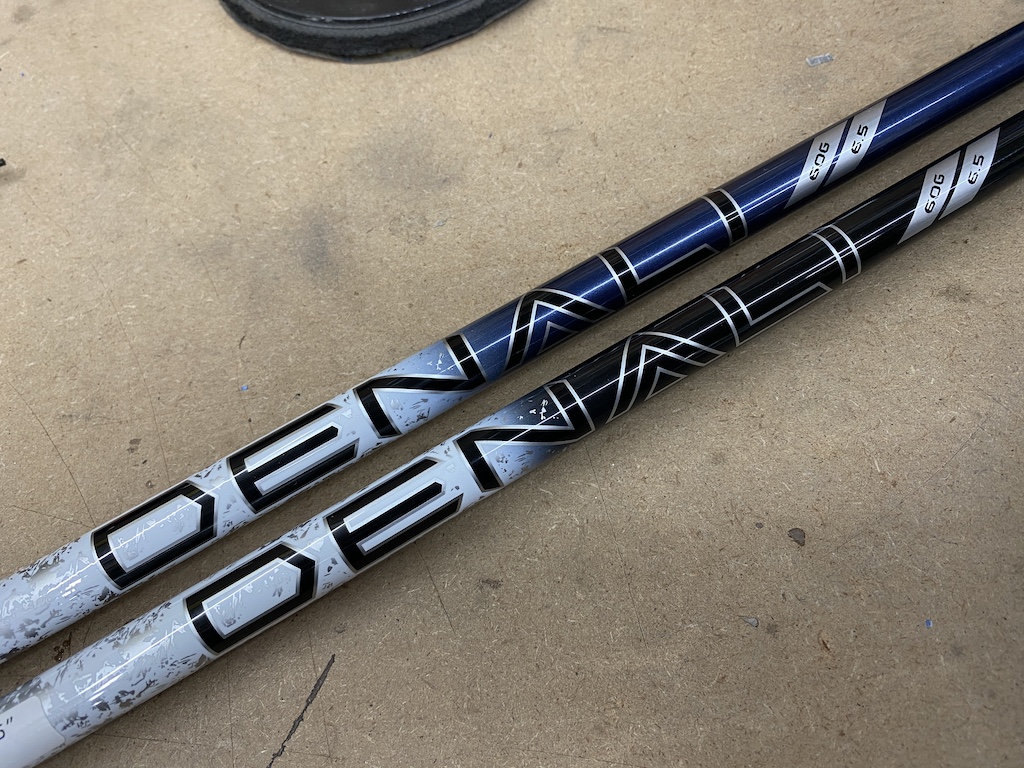
Originally, Project X was known for low-spin steel iron shafts. However, the company might now be known for wood shafts. Denali is the newest line of graphite shafts from Project X. With the Denali line, the company focuses on feel as well as performance.
There are two profiles in the Denali line, Blue and Black, to fit different launch windows. Denali Blue is the mid-launch and mid-spin profile for players who are looking for a little added launch and Denali Black is designed for low-launch and low-spin. Both models are going to offer you a smooth feel and accuracy.
For a full in-depth review check out the Club Junkie podcast on all podcast streaming platforms and on YouTube.
Project X Denali Blue
I typically fit better into mid-launch shafts, as I don’t hit a very high ball so the Denali Blue was the model I was more excited to try. Out of the box, the shaft looks great and from a distance, it is almost hard to tell the dark blue from the Denali Black. With a logo down install of the shaft, you don’t have anything to distract your eyes, just a clean look with the transition from the white and silver handle section to the dark navy mid and tip.
Out on the course, the Blue offers a very smooth feel that gives you a good kick at impact. The shaft loads easily and you can feel the slightly softer handle section compared to the HZRDUS lineup. This gives the shaft a really good feel of it loading on the transition to the downswing, and as your hands get to impact, the Denali Blue keeps going for a nice, strong kick.
Denali Blue is easy to square up at impact and even turn over to hit it straight or just little draws and most of the flex of the shaft feels like it happens right around where the paint changes from silver to blue. The Blue launches easily and produces what I consider a true mid-flight with the driver. While it is listed as mid-spin, I never noticed any type of rise in my drives. Drives that I didn’t hit perfectly were met with good stability and a ball that stayed online well.
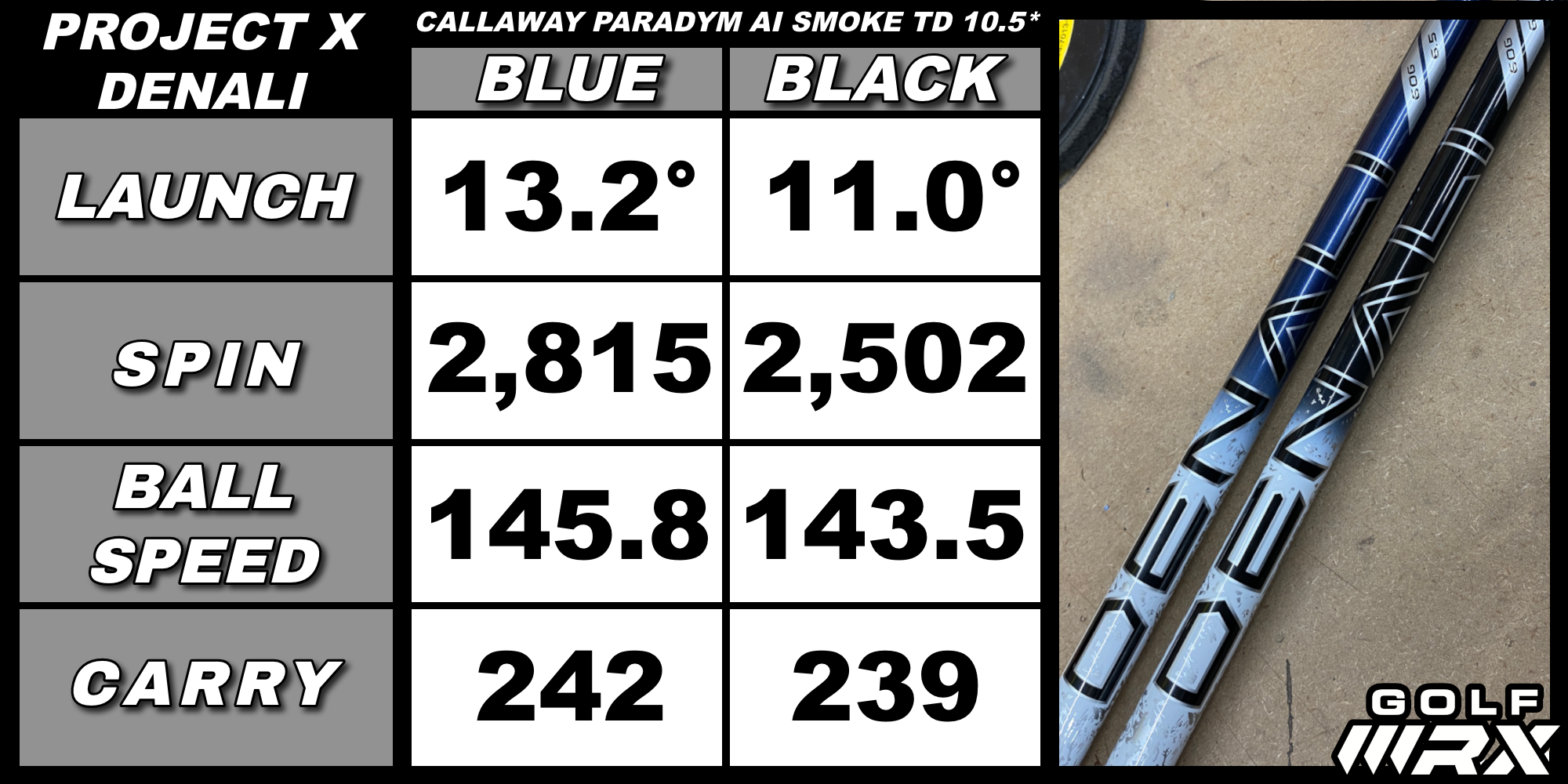
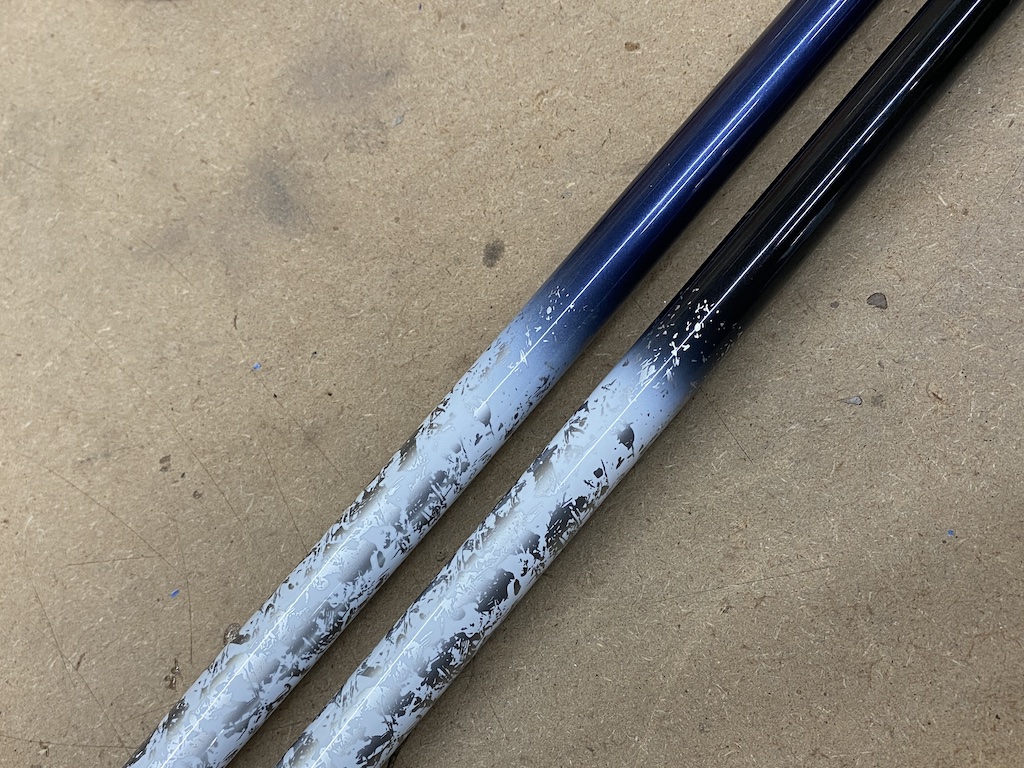
Project X Denali Black
When you hold the Denali Black in your hands you can tell it is a more stout shaft compared to its Blue sibling by just trying to bend it. While the handle feels close to the Blue in terms of stiffness, you can tell the tip is much stiffer when you swing it.
Denali Black definitely takes a little more power to load it but the shaft is still smooth and doesn’t give you any harsh vibrations. Where the Blue kicks hard at impact, the Black holds on a little and feels like keeps you in control even on swings that you try and put a little extra effort into. The stiff tip section also makes it a little harder to square up at impact and for some players could take away a little of the draw from their shot.
Launch is lower and more penetrating compared to the Blue and produces a boring, flat trajectory. Shots into the wind don’t rise or spin up, proving that the spin stays down. Like its mid-launch sibling, the Black is very stable and mishits and keeps the ball on a straighter line. Shots low off the face don’t get very high up in the air, but the low spin properties get the ball out there farther than you would expect. For being such a stout shaft, the feel is very good, and the Denali Black does keep harsh vibrations from your hands.
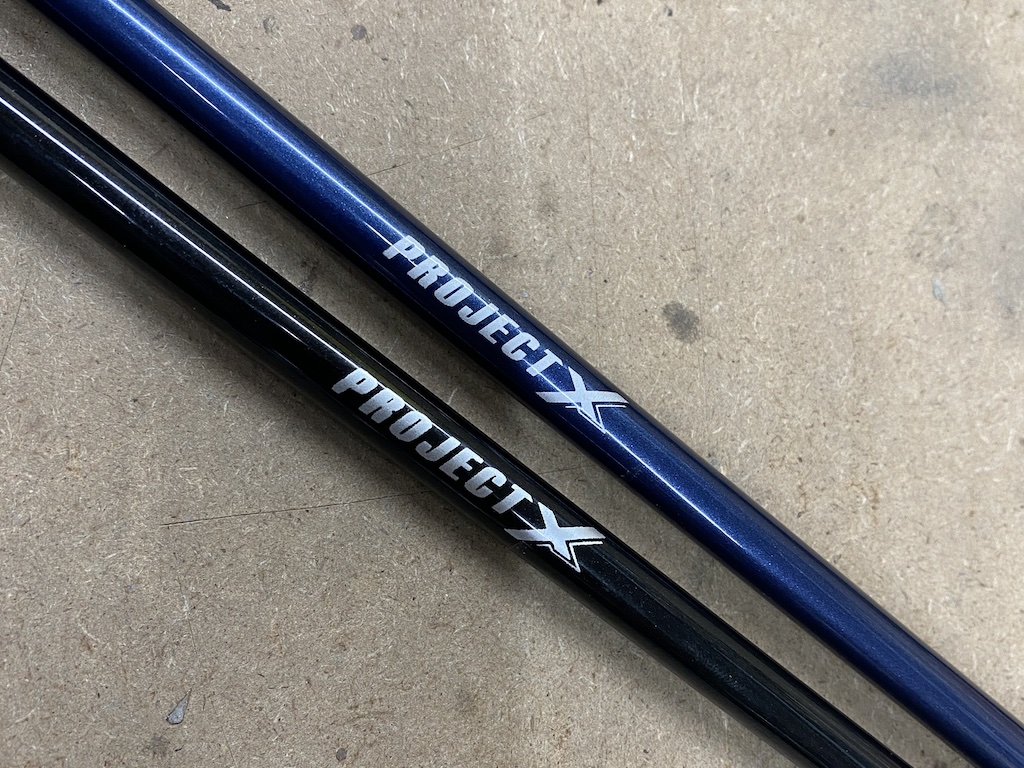
Overall the Project X Denali Blue and Black are great additions to the line of popular wood shafts. If you are looking for good feel and solid performance the Denali line is worth trying out with your swing. Choose Blue for mid-launch and mid-spin or Black for lower launch and low spin.
- LIKE4
- LEGIT4
- WOW2
- LOL0
- IDHT0
- FLOP0
- OB0
- SHANK0
Equipment
What we know about Bryson DeChambeau’s 3D-printed Avoda irons
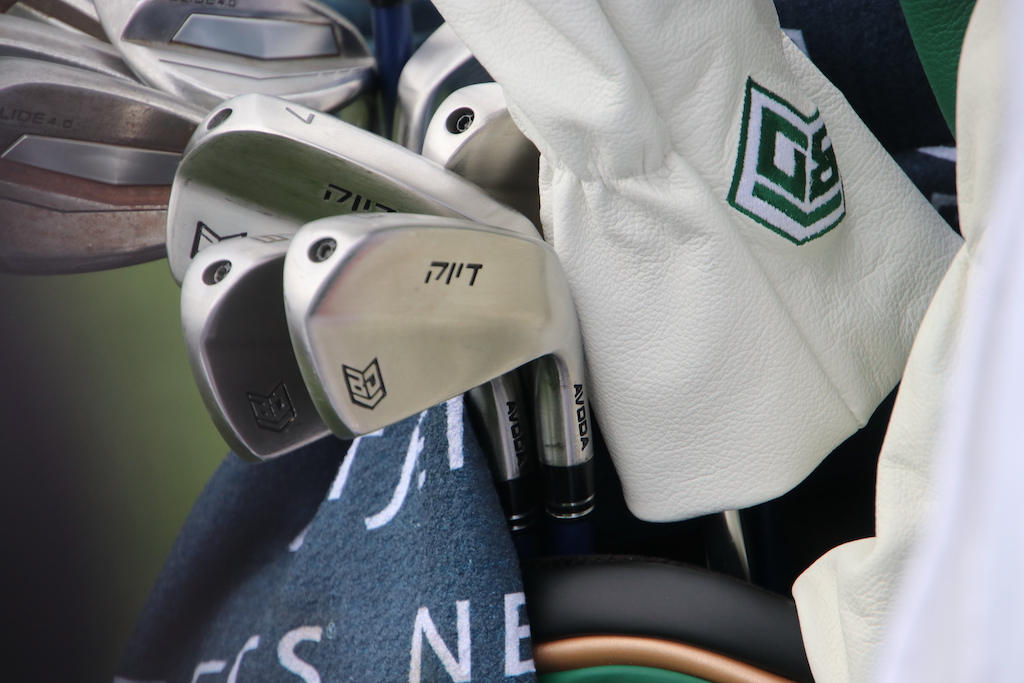
Bryson DeChambeau fired an opening-round 7-under 65 at Augusta National, hitting an impressive 15 of 18 greens in regulation in the process. Golf’s mad scientist’s play grabbed headlines and so too did his equipment. In place of the Ping i230 irons he had in the bag last week for LIV Golf’s Miami event, DeChambeau is gaming a prototype 5-PW set of irons from little-known direct-to-consumer manufacturer Avoda.
What is Avoda Golf?
Founded by Tom Bailey, also a Mike Schy student like Bryson DeChambeau, Avoda Golf is a direct-to-consumer golf equipment company that currently manufactures both single and variable-length irons in one model that are available for pre-order.
What irons is Bryson DeChambeau playing?
Per multiple reports, DeChambeau is playing a custom-designed set of single-length irons that incorporate bulge and roll into the face design. The two-piece 3D-printed irons were reportedly only approved for play by the USGA this week, according to Golfweek’s Adam Schupak.
Regarding the irons, DeChambeau told Golf Channel the irons’ performance on mishits was the determining factor in putting them in play this week. “When I mishit on the toe or the heel,” DeChambeau said. “It seems to fly a lot straighter for me and that’s what has allowed me to be more comfortable over the ball.”
What can we tell about the design of the clubs?
These days, it is a little hard to speculate on what is under the hood with so many hollow body irons. DeChambeau’s irons look to be hollow on the lower section as they do flare back a decent amount. That “muscle” on the back also looks to be fairly low on the iron head, but we can assume that is progressive through the set, moving up higher in the short irons.
A screw out on the toe is probably used to seal up the hollow cavity and used as a weight to dial in the swing weight of the club. From pictures, it is hard to tell but the sole looks to have a little curve from heel to toe while also having some sharper angles on them. A more boxy and sharper toe section looks to be the design that suits Bryson’s eye based on the irons he has gravitated toward recently.
What are bulge and roll, again?
Two types of curvature in a club face, traditionally incorporated only in wood design. Bulge is heel-toe curvature. Roll is crown-sole curvature. Both design elements are designed to mitigate gear effect on off-center strikes and produce shots that finish closer to the intended target line. (GolfTec has an excellent overview of bulge and roll with some handy GIFs for the visual learner)
What else is in DeChambeau’s bag?
Accompanying his traditional Sik putter, Bryson builds his set with a Ping Glide 4.0 wedges, a Krank Formula Fire driver and 5-wood, and a TaylorMade BRNR Mini Driver, all with LA Golf graphite shafts.
- LIKE114
- LEGIT38
- WOW30
- LOL16
- IDHT9
- FLOP9
- OB10
- SHANK23
-

 19th Hole4 days ago
19th Hole4 days agoDave Portnoy places monstrous outright bet for the 2024 Masters
-
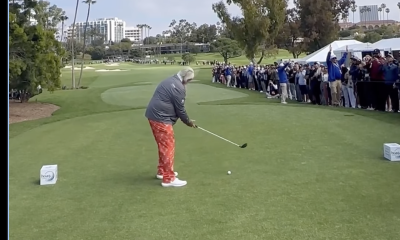
 19th Hole3 weeks ago
19th Hole3 weeks agoJohn Daly stuns fans into silence with brutal opening tee shot on PGA Tour Champions
-
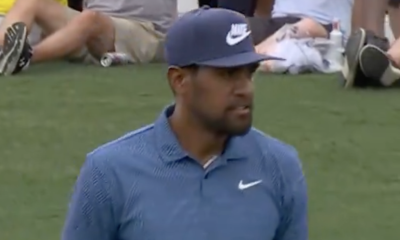
 19th Hole2 weeks ago
19th Hole2 weeks agoThings got heated at the Houston Open between Tony Finau and Alejandro Tosti. Here’s why
-
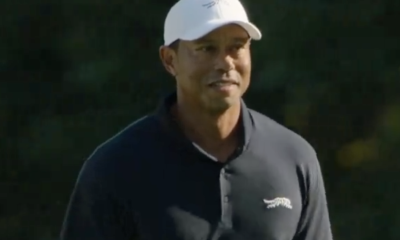
 19th Hole5 days ago
19th Hole5 days agoTiger Woods arrives at 2024 Masters equipped with a putter that may surprise you
-
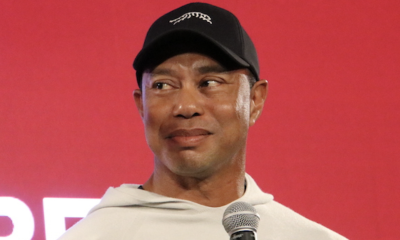
 19th Hole1 week ago
19th Hole1 week agoReport: Tiger Woods has ‘eliminated sex’ in preparation for the 2024 Masters
-

 19th Hole3 weeks ago
19th Hole3 weeks agoCharlie Woods finds it tough going on American Junior Golf Association debut
-
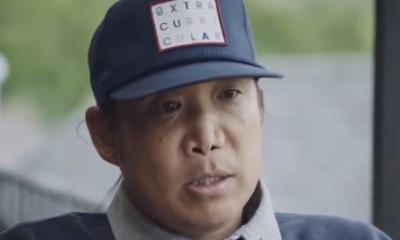
 19th Hole2 weeks ago
19th Hole2 weeks agoAddiction, spinal fusion, and scam artists – Everything Anthony Kim revealed in candid interview with David Feherty
-
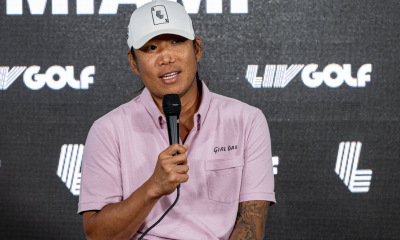
 19th Hole1 week ago
19th Hole1 week agoAnthony Kim says doctors told him that he ‘may not have much time left’ ahead of LIV return







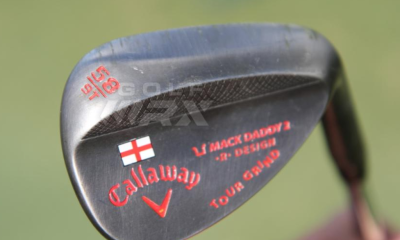

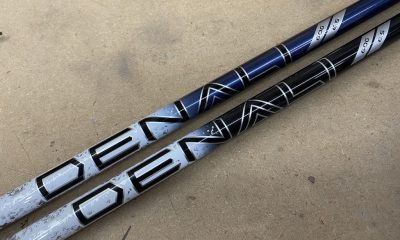

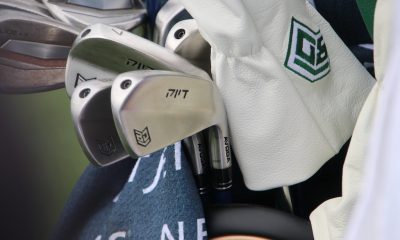

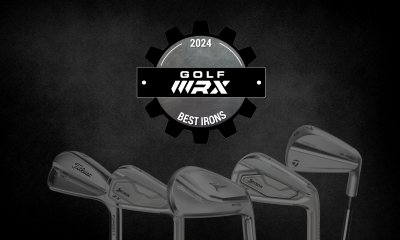

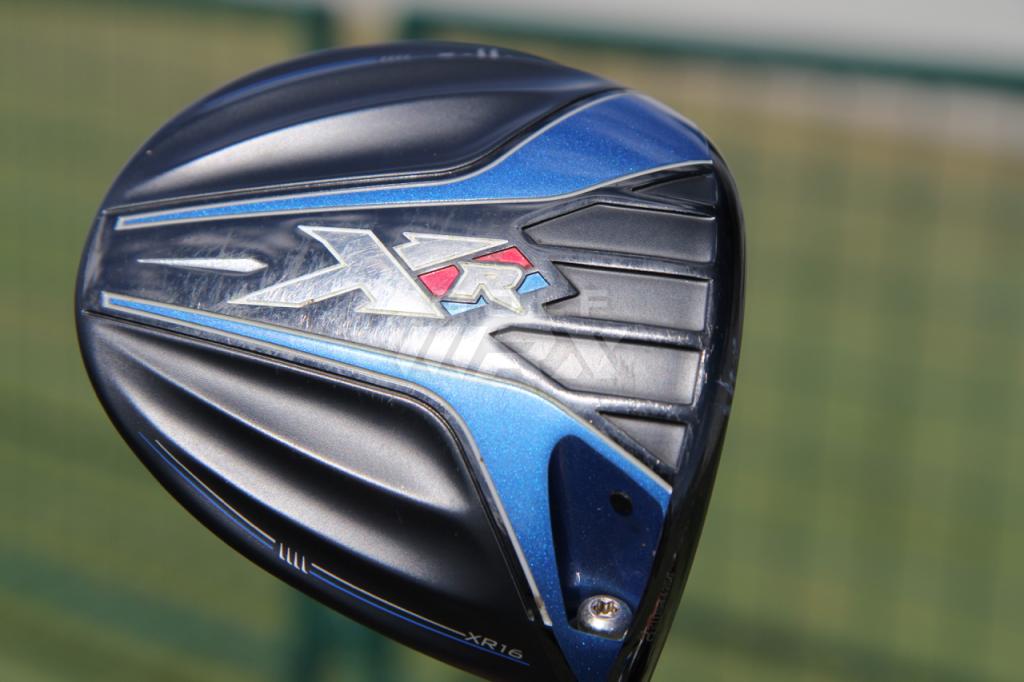
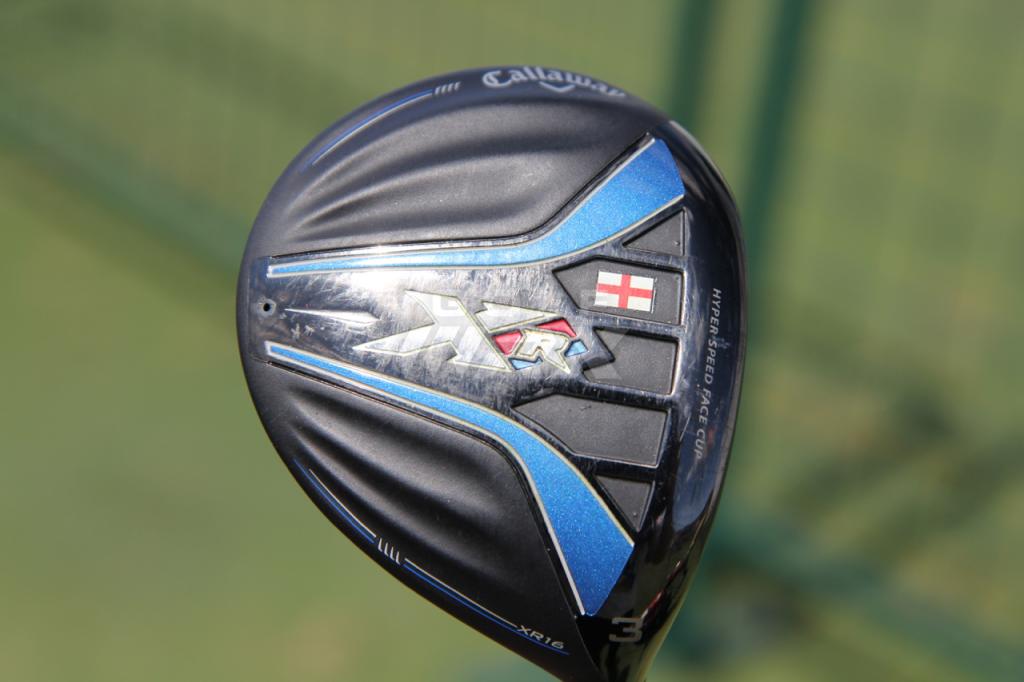

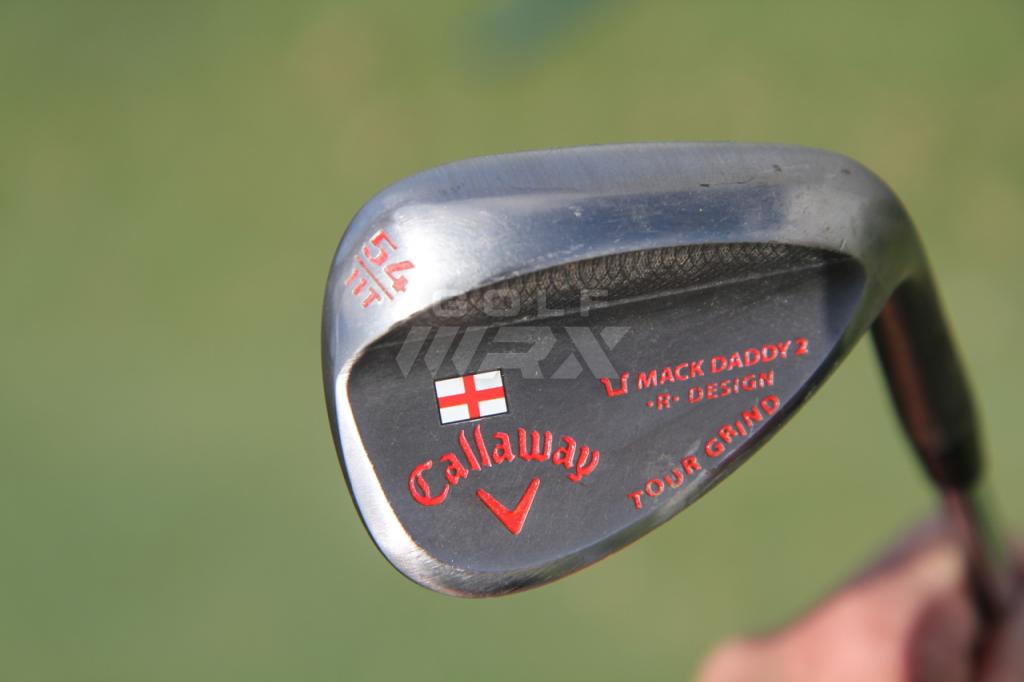
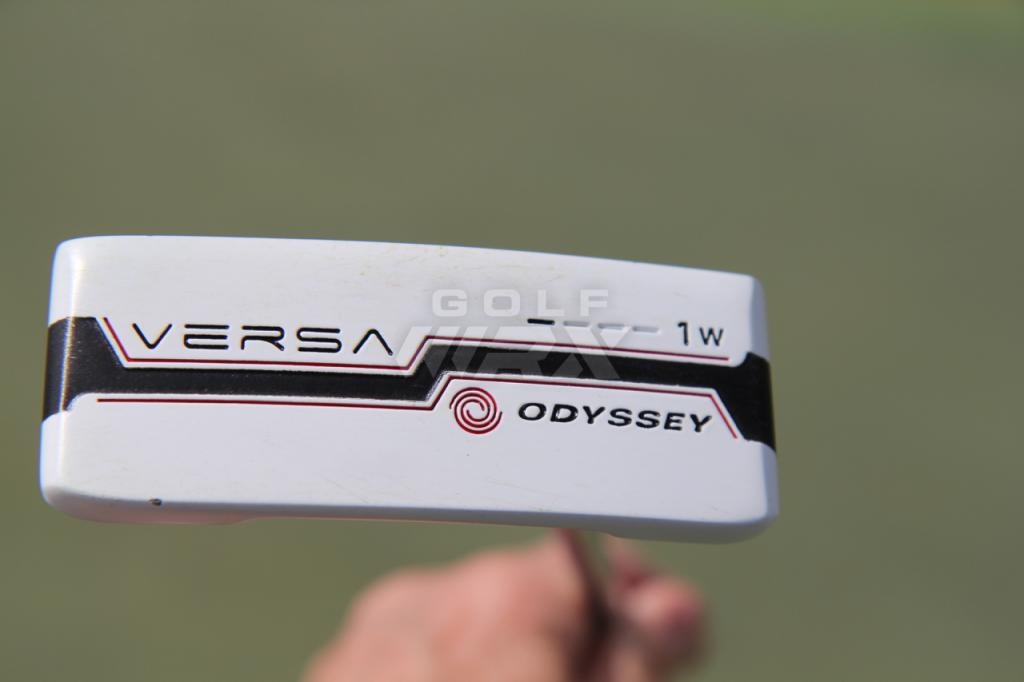






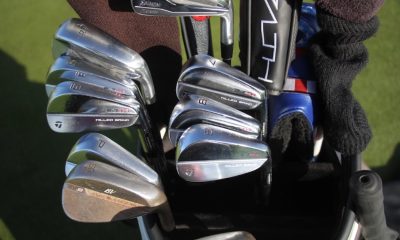

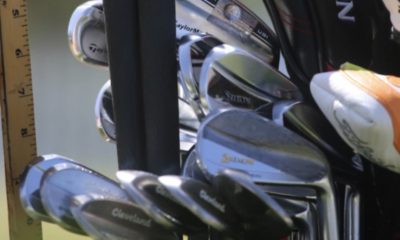

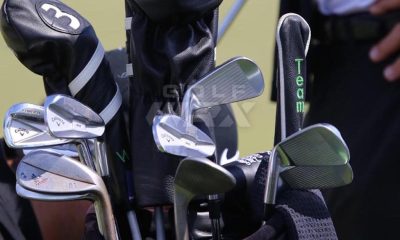

Joe Dante
Feb 9, 2019 at 12:38 pm
does project x have a black finish iron shaft?
Andy LaCombe
Jan 18, 2019 at 9:46 pm
Damn – I love black irons and just got a set of AP3 irons in the fall 🙁
Steve Cantwell
Jan 18, 2019 at 12:36 pm
While on vacation I rented a set of clubs that had a dark finish. I really liked the look. Aside from the Cheap PVD coating, is there a reason manufactures don’t offer this option more often? Or do they just see it as an opportunity to jack up prices?
Tiger Noods
Jan 17, 2019 at 7:30 pm
I’m more excited by the AMT in onyx…
Ryan
Jan 17, 2019 at 4:10 pm
I don’t understand. If it is known that the PVD will wear off almost immediately, then why use it? Is it that much cheaper?
BIG T
Jan 17, 2019 at 2:49 pm
Its widely known that PVD is cheep and doesnt hold up. So why do people spend the extra few hundred on it???
dat
Jan 17, 2019 at 1:23 pm
PVD? That finish is toast in a few rounds. For that kind of money, I’d expect a DBM finish like the rest of the industry is using.
JP
Jan 17, 2019 at 12:23 pm
Tight!
Chris
Jan 17, 2019 at 11:25 am
Id buy these in a heartbeat…If I had an extra $1,500 laying around haha
Dosh
Jan 17, 2019 at 9:46 am
Why
C
Jan 17, 2019 at 10:42 am
Why not?
Dosh
Jan 17, 2019 at 9:17 pm
Because PVD is shyyyyte??
Gunter Eisenberg
Jan 17, 2019 at 9:37 am
Those things will sell really well but the PVD coating won’t last long. Look at other past black irons using that same coating and you’ll see what I mean.